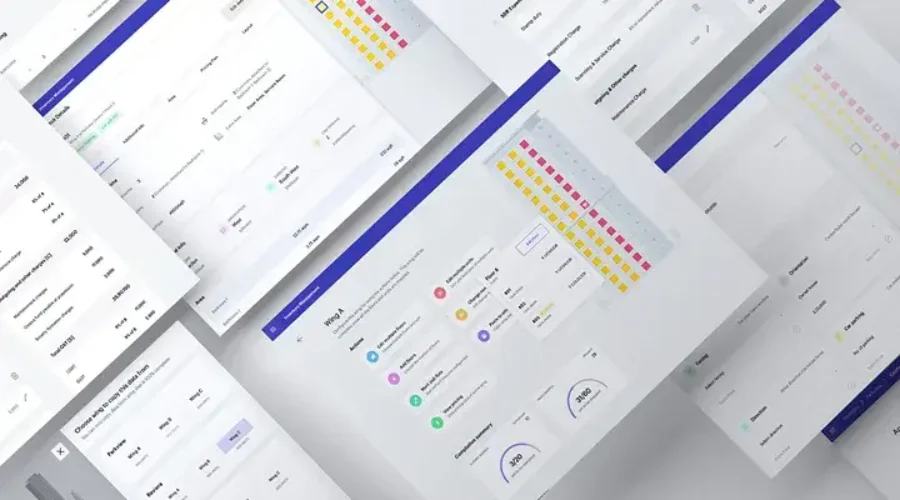Real estate inventory management system
A Real Estate Inventory Management System is a specialized software solution designed to help real estate companies, brokers, and property managers efficiently manage their property listings, track inventory, and streamline various operational processes. This system can be invaluable for handling large volumes of property data, ensuring accurate information, and optimizing the sale or rental processes.
Key Features of a Real Estate Inventory Management System
- Property Listing Management
- Centralized Database: Store and manage detailed information on all available properties, including residential, commercial, and land listings.
- Categorization: Classify properties by type, status (e.g., available, sold, rented), location, price range, and other relevant criteria.
- Media Management: Upload and manage property images, videos, floor plans, and virtual tours to enhance listings.
- Automated Listing Updates
- Real-time Updates: Automatically update property statuses across platforms (e.g., website, mobile app, partner sites) as they are sold or rented.
- Sync with Multiple Channels: Integrate with major real estate portals to push listings and updates automatically, reducing manual work.
- Client and Lead Management
- CRM Integration: Track client interactions, manage leads, and schedule follow-ups to ensure timely responses to inquiries.
- Matching Algorithms: Match available properties with client preferences, improving the likelihood of successful transactions.
- Communication Tools: Automate email and SMS notifications to clients about new properties or status changes in their areas of interest.
- Reporting and Analytics
- Inventory Reports: Generate reports on available inventory, upcoming listings, and historical sales or rental data.
- Performance Metrics: Track key performance indicators (KPIs) such as days on the market, conversion rates, and revenue per property.
- Market Insights: Analyze trends and patterns in property demand, helping to make informed decisions on pricing, marketing, and inventory acquisition.
- Contract and Document Management
- Digital Contracts: Store and manage all property-related documents, including sales agreements, lease contracts, and legal paperwork.
- E-signatures: Enable clients and agents to sign contracts electronically, speeding up the transaction process.
- Compliance Tracking: Ensure all documents meet regulatory and legal requirements, reducing the risk of disputes.
- Task and Workflow Automation
- Task Management: Assign and track tasks related to property inspections, client meetings, or document processing.
- Workflow Automation: Automate routine processes such as listing updates, client follow-ups, and payment reminders.
- Notification System: Set up alerts and reminders for key deadlines, property showings, and other critical activities.
- Integration with Other Systems
- Accounting Software: Sync with accounting systems to manage payments, invoices, and financial reporting.
- Calendar and Scheduling Tools: Integrate with calendar apps to manage appointments, property viewings, and open house events.
- API Support: Provide APIs to integrate with other business tools, such as customer relationship management (CRM) systems, marketing platforms, or data analytics tools.
- User Access Control
- Role-based Access: Define different levels of access for administrators, agents, brokers, and clients to ensure data security.
- Audit Trails: Track changes and access to the system, providing transparency and accountability.
Benefits of Using a Real Estate Inventory Management System
- Efficiency: Automates time-consuming tasks such as listing updates, document management, and client follow-ups, freeing up time for agents to focus on sales.
- Accuracy: Reduces errors in property listings, contract management, and inventory tracking, ensuring that all information is up-to-date and accurate.
- Scalability: Easily manages large volumes of property data and can grow with your business, whether you handle a few dozen listings or thousands.
- Improved Client Service: Enhances the client experience by providing timely and relevant property information, streamlining communication, and ensuring fast responses to inquiries.
- Data-Driven Decisions: Provides valuable insights through analytics and reporting, enabling better decision-making on pricing, marketing, and inventory management.
Conclusion
A Real Estate Inventory Management System is a crucial tool for any real estate business looking to optimize operations, improve client service, and stay competitive in a fast-paced market. By centralizing and automating property management tasks, this system can significantly enhance the efficiency and effectiveness of real estate professionals.



A WordPress Commenter
August 3, 2024 at 7:26 amHi, this is a comment.
To get started with moderating, editing, and deleting comments, please visit the Comments screen in the dashboard.
Commenter avatars come from Gravatar.